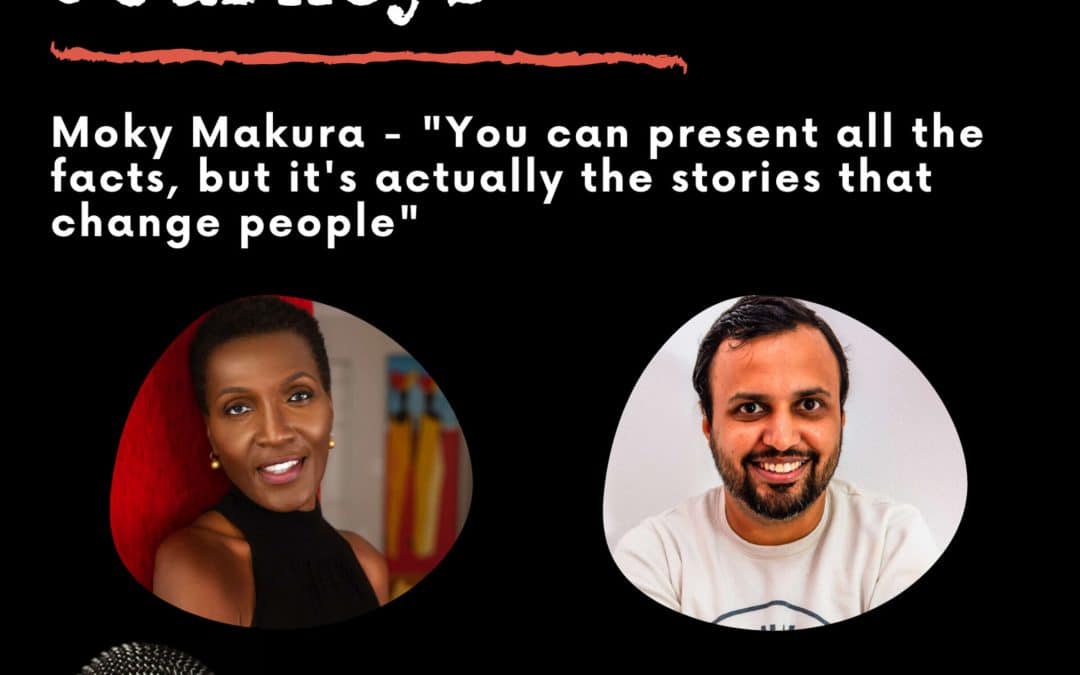This is the Leadership Journey series on the Choosing Leadership Podcast.
I believe we all have a lot to learn from each other’s stories – of where we started, where we are now, and our successes and struggles on the way. With this series of interviews, my attempt is to give leaders an opportunity to share their stories and for all of us to learn from their generous sharing.
In the interview, Moky talks about her trust in the universe, and how that allows her to take risks and venture into very different territories. We talk about how growing up in Nigeria gave her such a boost of confidence that she doesn’t see “failure” as anything except learning. She also highlighted how her parents never told her that she can not do this or that – and which allowed her to take big risks in her career.
You can find Christian at the below links
In the interview, we talk about
- “Our theory of change is that in order to shift or change the narrative, you’ve got to introduce new different stories.”
- “Where do you want to be buried? And when I think about that, I won’t be buried in Nigeria or my ashes sprinkled in Nigeria that’s home. So I think first and foremost, I am Nigerian and second be I am an African”
- “I used to have a talk about my career, which is called jumping trees. And the reason why I use that analogy was that I never climbed the tree to get to the top of it. I went to the top of one. To the top of another, to the top of another. So I was jumping trees.”
- I went from never being an actress to having been a lead on a what turned out to be a really groundbreaking, a major drama series in Africa. So I went straight from never having gone to drama school to being in a top drama that required a lot of being brave because I’d never acted before. You’ve just got to trust the universe that when you do these things, when you jump onto a tree or you jump from one thing to another, I just trust the universe, which requires a lot of confidence in both yourself and the universe.”
- “There was this image that, because you’re black, you weren’t as good. And you were African, you were even not really not as good because I’ve always said there’s a hierarchy. It’s probably white men at the top, then black men, then white women and then black women.
And then at the bottom of that is African women” - “my formative years were, spent in Nigeria and there was something about that continent that. Us all such a boost of confidence. I stepped out in the world as if I was in first class and the world had to fall behind me. I grew up believing I was a proud Nigerian and still am, and that makes a very big difference.”
- “Failure is part and parcel of who I am, because I don’t see it as failure. I just see it as, the experience. And I think that is a huge sort of difference in confidence booster because I never failed. I just learnt. “
- “Storytelling is powerful. It is the single thing that can inform, educate, influence. If you think about, for example, how you got your impression about America? It wasn’t probably because you went there. It was because you watched the American movies, then you figured out that’s, you know who they are.”
- “It’s not about, fighting the issue. It’s about putting out stories that counter the issue because people’s beliefs do not come from facts. It comes from perceptions and an ideology and all these other soft things. You can present the facts, but it’s actually the stories that change people. “
- “I think we need to learn to embrace diversity because we are not very good at it. It’s actually why there is so much polarization because people want us all to be the same. Nobody’s allowing that truth that you live, let me live. For me, it’s really not about, one, anything it’s about, embracing the diversity of this globe.”


Trackbacks/Pingbacks